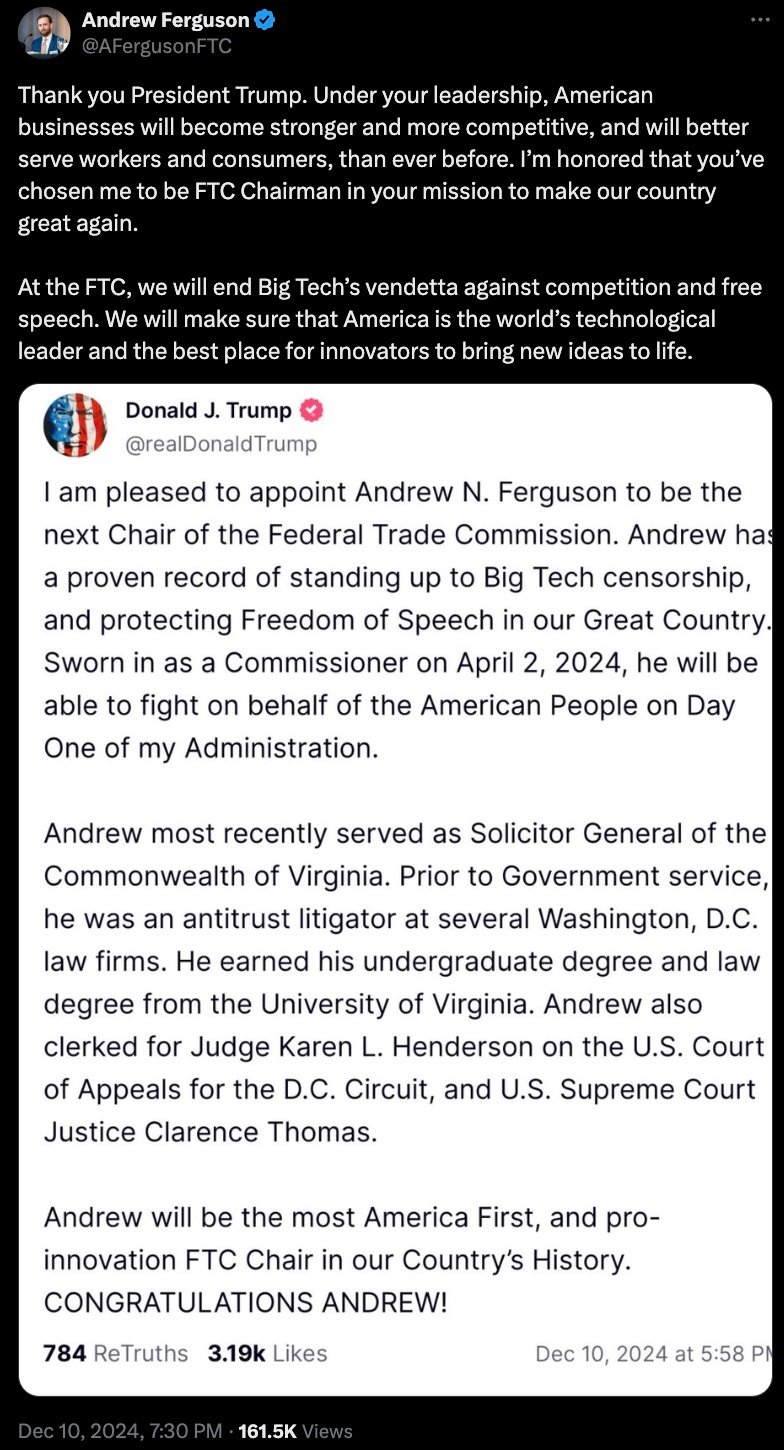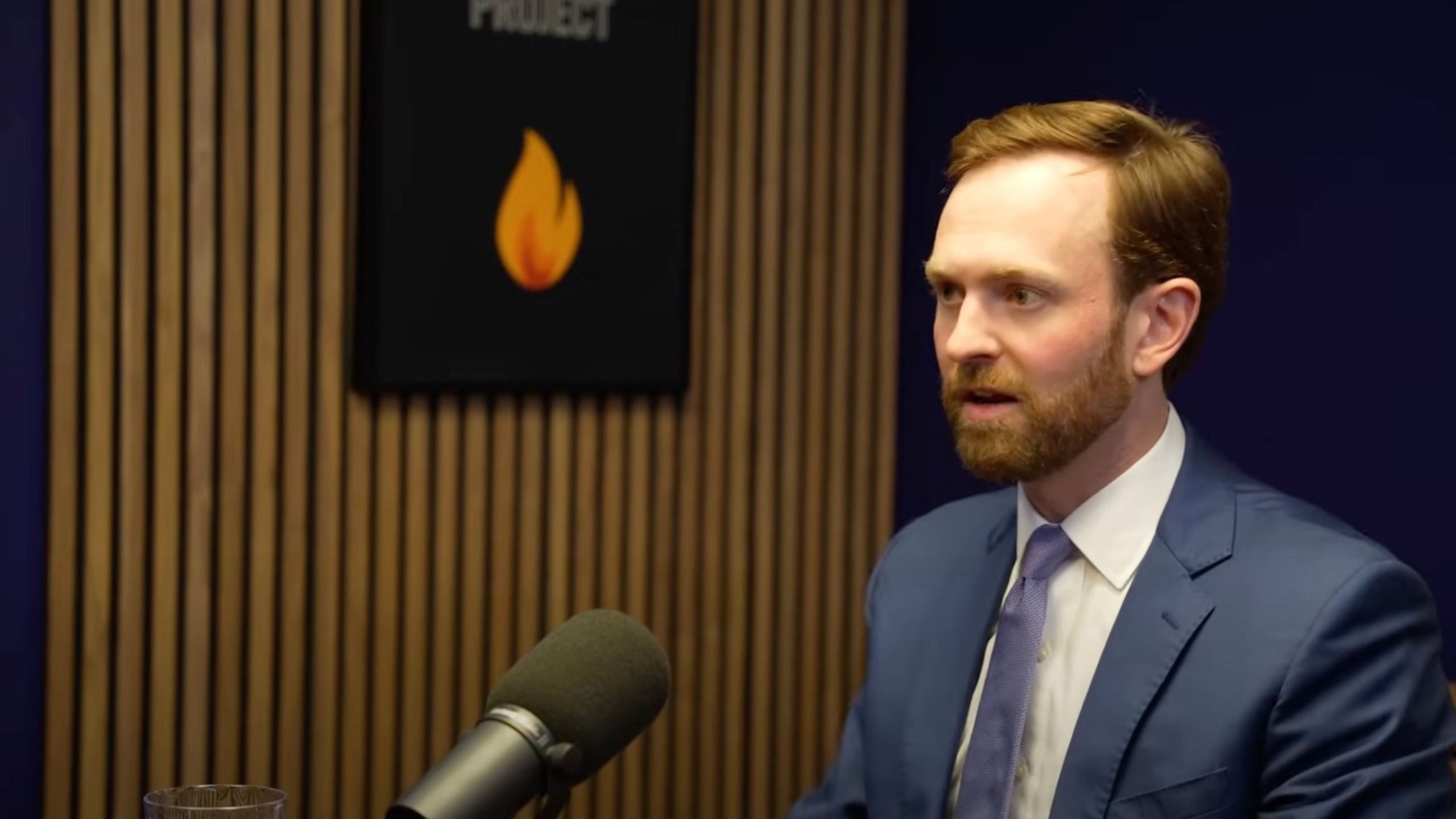Donald Trump, the incoming US president, has chosen Andrew Ferguson, a Federal Trade Commissioner, to lead the Federal Trade Commission (FTC). The announcement, made Tuesday through Trump’s Truth Social platform, marks a strategic shift in the agency’s leadership, reflecting a clear commitment to combating censorship and promoting free speech. Ferguson’s leadership promises to align with a robust “America First” agenda that prioritizes innovation and individual liberties.
Trump described Ferguson as “the most America First, and pro-innovation FTC Chair in our Country’s History” and praised his track record for challenging Big Tech’s efforts to stifle voices.
“Andrew has a proven record of standing up to Big Tech censorship, and protecting Freedom of Speech in our Great Country,” Trump declared.

Ferguson, who served as Virginia’s solicitor general and once clerked for Supreme Court Justice Clarence Thomas, is outspoken about tackling online censorship, particularly targeting instances where social media platforms or advertisers suppress conservative perspectives.
According to Ferguson, coordinated efforts to silence such viewpoints or remove advertising from platforms like Elon Musk’s X should be investigated as potential antitrust violations. He has stated, “We must vigorously enforce the antitrust laws against any platforms found to be unlawfully limiting Americans’ ability to exchange ideas freely and openly.”
Lina Khan, who currently leads the FTC, has built a reputation as an aggressive enforcer of antitrust laws, frequently clashing with corporate America. Under her leadership, the agency has derailed mergers worth billions of dollars, earning sharp criticism from Wall Street and major industries alike.
In collaboration with the Department of Justice’s antitrust division, Khan’s FTC has acted against numerous corporate deals, arguing that excessive consolidation stifles competition, inflates prices, and exploits workers.
Beyond grocery chains, the FTC under Khan has targeted sectors as varied as Big Tech, pharmaceuticals, and even mattress manufacturing, positioning itself as a staunch defender of competitive markets.
These actions have made Khan both a polarizing figure and a political flashpoint, with detractors labeling her approach overzealous while others commend her determination to rein in corporate power.
Despite her impending departure, Khan’s legacy is influencing even those within Trump’s incoming administration. Some Republicans have embraced aspects of her aggressive antitrust stance.
Vice President-elect JD Vance has been vocal in his nuanced view of Khan, stating earlier this year that she is “one of the few people in the Biden administration that I think is doing a pretty good job.”
As Andrew Ferguson prepares to step into Khan’s role, he inherits an agency embroiled in high-stakes cases and ideological divides. Whether he continues, modifies, or outright abandons Khan’s unfinished battles will signal the future trajectory of antitrust enforcement.
Under Ferguson’s leadership, the FTC could pivot from aggressive interventionism toward a framework that balances competition enforcement with a stronger emphasis on protecting free speech and innovation. It remains to be seen.










